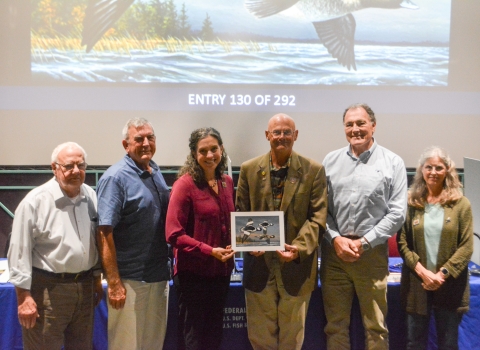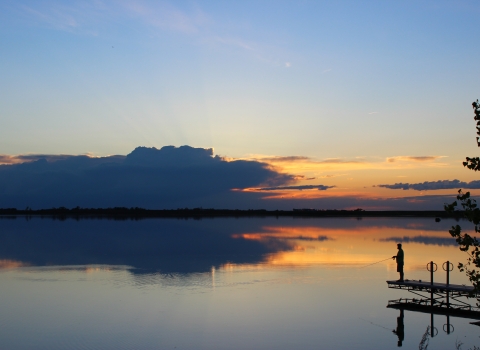Imperiled wildlife across the nation will benefit from approximately $7.6 million in grants, thanks to the U.S. Fish and Wildlife Service’s Competitive State Wildlife Grant (C-SWG) Program. The C-SWG Program provides federal grant funds to support projects implemented by state and territory agencies to benefit fish and wildlife and their habitats, especially at-risk or imperiled species.
The Wildlife and Sport Fish Restoration Program (WSFR), the program that administers the C-SWG Program, is providing funding for16 projects and partially funding two additional projects in 2022. The 2022 recipients include fish and wildlife agencies in Alabama, Alaska, Georgia, Guam, Hawai’i, Minnesota, Nebraska, Oregon, Vermont, Virginia and Washington. A grant is also being awarded to the Northeast Association of Fish and Wildlife Agencies for accessibility and functionality enhancements for the Northeast State Wildlife Action Plan Database.
“Since 2008, a portion of the State Wildlife Grant Program funding has been used for these competitive grants to encourage interstate collaboration, innovation and species conservation at larger scales to keep species from reaching the point where they are in danger of extinction or are too far gone to save” said Service Director Martha Williams.
“These grants are vital to supporting our state and territory partners as they work to recover America’s declining species and habitats. Conserving the nation’s biodiversity and stemming the ongoing extinction crisis is a central component of the Biden-Harris Administration’s America the Beautiful initiative, a locally led, voluntary nationwide effort to conserve, connect and restore 30 percent of lands and waters by 2030.”
The C-SWG Program employs a nationally competitive process to select and fund projects that conserve species listed in State Wildlife Action Plans. All 56 state and territory wildlife agencies have such plans, which target state-identified Species of Greatest Conservation Need. The program facilitates collaboration among state, federal, Tribal and nongovernmental fish and wildlife managers, creating nationwide conservation networks. Fortifying this spirit of collaboration is $2.8 million in nonfederal funds provided by states and their partners to support the selected projects.
Examples of this year’s funded projects include:
The Hawai’i Department of Lands and Natural Resources is protecting and monitoring endangered seabirds and ecosystems. Island populations of seabirds are highly susceptible to invasive mammalian predators such as mongoose, domestic cats and rodents. The agency will help restore the suitability of hundreds of acres of nesting habitat for three federally endangered seabird species and protect all known remnant populations of these species within state lands on Hawaiʻi Island.
State agencies in Alabama, North Carolina, Pennsylvania and Vermont are collaborating to identify habitat use of Species of Greatest Conservation Need across multiple scales throughout the eastern United States using the Motus Wildlife Tracking System. Motus is a research network that uses radio telemetry to inform and enhance the conservation of migratory wildlife. The four-state fish and wildlife agencies and their additional state and nonprofit partners will establish and use 35 telemetry receiver stations to study and conserve a variety of sensitive and declining species. Targeted species include the bog turtle (federally threatened in the Northeast), golden-winged warbler (under review for federal listing), and the federally endangered gray bat.
The Alaska Department of Fish and Game is partnering on research and conservation for Cook Inlet beluga whales. The federally endangered Cook Inlet beluga whale is an Alaska species of greatest conservation need. The agency will partner with the University of Alaska-Fairbanks and NOAA Fisheries to conduct essential research and coordinate with Tribes, industry representatives and other stakeholders to establish mitigation measures and modify permit review procedures to minimize and mitigate future impacts on belugas and their habitat.
The complete list of 2022 SWG competitive projects can be found here:https://www.fws.gov/media/fy2022-cswg-selected-project-summariesdocx
The C-SWG Program is part of the larger SWG Program that awards grants according to a formula described in the annual appropriations act and based on a state or territory’s geographical size and population. For more information on the SWG program visit:


